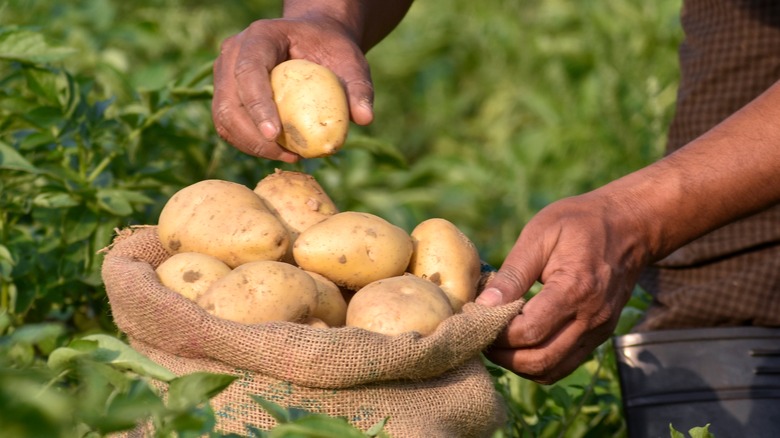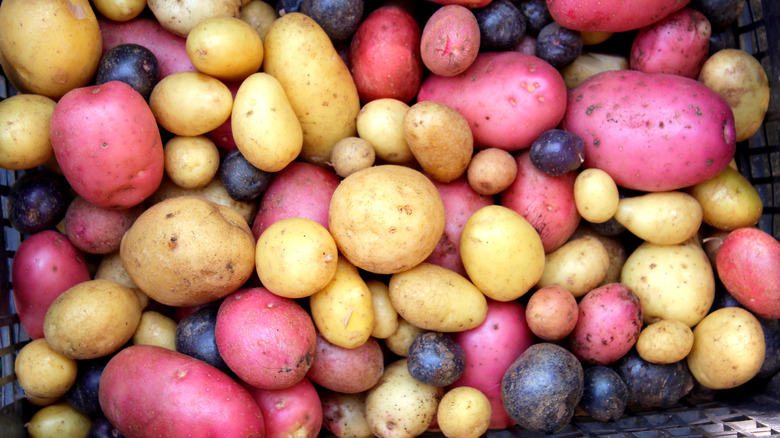Scientists Are Modifying Potatoes To Be Better For Diabetics
Potatoes are a vital food source worldwide. They're the third biggest crop, behind wheat and rice, grown across the globe. Developing countries in particular have embraced potato growth, making it a vital crop for food security (via the International Potato Center). However, according to a study in the medical journal Diabetes Care, people who included potatoes regularly in their diet had an increased risk of developing Type 2 diabetes.
As the Centers for Disease Control and Prevention (CDC) explains, insulin impacts the conversion of food to energy in our bodies. When we eat, our blood sugar rises, which releases insulin from the pancreas. The insulin helps shunt the sugars into our blood cells. When the insulin response is damaged, too much glucose can remain in the bloodstream. Elevated blood glucose can lead to Type 2 diabetes, which can cause a host of health problems, from obesity to heart disease to fatty liver disease (via the Mayo Clinic).
However, as the Cleveland Clinic also explains, carbohydrates are an essential macronutrient that contain sugar, fiber, and starch. Fruits and vegetables are considered complex carbohydrates, while pasta, bread, rice, and potatoes are simple carbs. It's the simple carbs that can cause problematic blood sugar spikes. The Harvard School of Public Health (HSPH) notes that complex carbohydrates, with their added fiber and other nutrients, take longer to digest, which slows the insulin response.
Scientists attempt to modify two starches in potatoes
White potatoes have a high glycemic index, according to the Harvard School of Public Health. This means the carbohydrates in these potatoes are digested faster, causing the insulin spike. HSPH explains that eating a cup of white potatoes causes the same blood sugar response as ingesting a can of sugary soda.
Scientists are experimenting with CRISPR technology (essentially a more cost-effective form of gene editing, via New Scientist) to modify amylose and amylopectin, two starches found in potatoes, to lower their glycemic load. Amylose is a resistant starch, which stabilizes blood sugar (via Optimus Medica). Amylopectin, by contrast, is a fast-digesting starch that, according to research (in the Journal of Nutrition), causes insulin resistance in rats.
AgriLife Today reports a study out of Texas A&M University that explains how raising the amylose levels and lowering the amylopectin, scientists are able to create potatoes with a lower glycemic index. Given that potatoes are a dietary staple for over 1 billion people worldwide, this new genetic technology can have significant impact across the globe.

